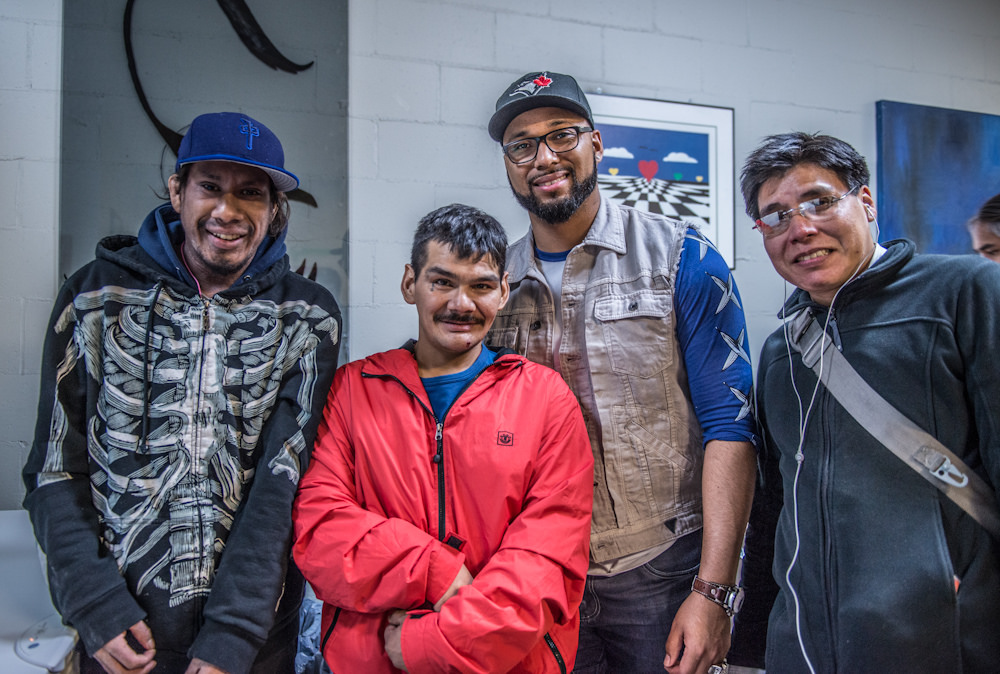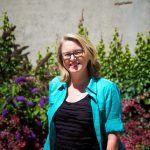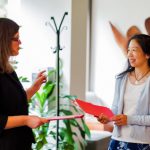Dude’s Club
If you’re a man living on the Downtown Eastside (DTES), life can be lonely. Until recently, very few health and wellness services existed that addressed isolation and encouraged men to seek out medical care and social connections.
In 2010, UBC clinical assistant professor, Dr. Paul Gross, physician at the Vancouver Native Health Clinic, along with Doreen Littlejohn, Manager of The Positive Outlook Program, a centre for people living with HIV/AIDS on the DTES, embarked on a mission to address this gap in services in the area. Men struggling with issues such as depression and Hepatitis C were suffering alone and not inclined to visit a doctor. The answer was to turn the traditional health care model on its head and bring these services out of the office setting to a place where men felt a high degree of safety and confidence.
The first meeting of the DUDES Club – Downtown Urban Knights Defending Equality and Solidarity – was held at the Vancouver Native Health Society on East Hastings in 2010 and has been running every second Thursday ever since. An average meeting attracts 50 to 60 men, mostly over 40, simply through word of mouth. According to Paul, the appeal of the club is that it creates a safe, supportive place for men to talk about health, both physical and mental. “Our first goal is to build community between the men for them to develop supportive, healing relationships, which is why the first hour is for activities like watching hockey, free haircuts, and a hot meal” says Paul. In the second hour, there is a group discussion on a specific health topic.
In its first year, Paul focused on building a rapport with the men and kept to topics they wouldn’t find awkward or threatening. Now in its fifth year, Paul is amazed at how comfortable the group has become. “We talk openly on subjects like erectile dysfunction and domestic violence,” he says. “We’ve even had a few watershed moments talking about sexual abuse.”
The DUDES Club is one of a suite of projects within UBC’s Movember funded Men’s Depression & Suicide Network, co-led by Dr. John Oliffe, from the UBC School of Nursing (www.menshealthresearch.ubc.ca). “Our program wouldn’t have had the academic legitimacy without Vicki Smye and the School of Nursing,” says Paul. Vicki’s research addresses inequities related to mental health and addictions systems and services with a particular focus in the areas of women and violence, cultural safety, and Aboriginal mental health. Vicki also connected Paul with Henry Charles, a Musqueam elder who is one of only five living Musqueam speakers and now serves as the DUDES Club Elder in Residence. “I didn’t expect we would have such a fabulous Elder,” says Paul. “His presence really bridges culture, language and health. Regardless of their background, all of the men identify with indigenous health tradition.”
Henry uses the medicine wheel to talk about the balance between mental, emotional, physical and spiritual health. “It helps them realize that their culture is not lost in the urban setting of Vancouver,” says Henry of the indigenous members of the group. “With their language comes a reconnection to their history and cultural traditions. I believe it makes them proud to be First Nations, which is a big statement considering their life experiences prior to joining the DUDES Club.”
While the full benefits of the program are still being measured, preliminary findings suggest it is making a big difference. “It helps those with Native heritage reconnect with their roots,” says Henry. “Some have even been able to better their lives and leave the Downtown Eastside because they realized they no longer belong there.”
Funding from the Movember Foundation has allowed for expansion of the DUDES club to three locations in the interior: Prince George, Smithers and Morricetown.



